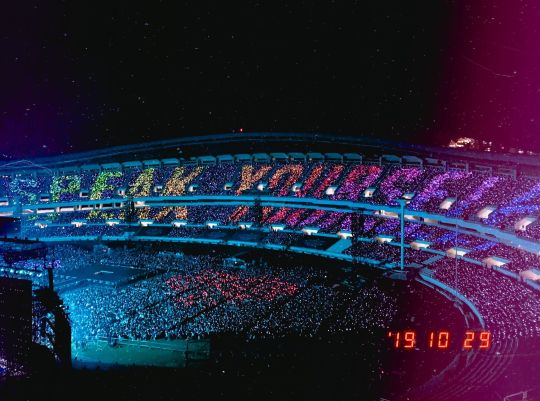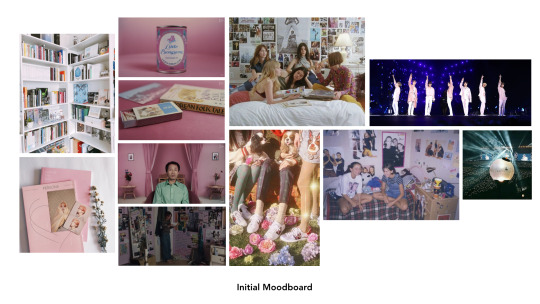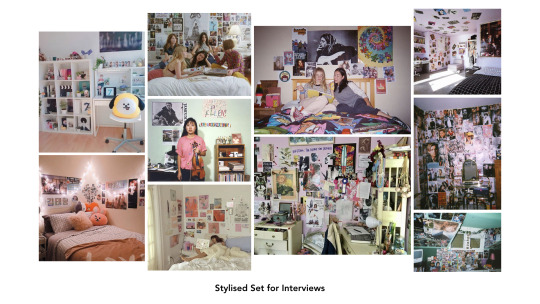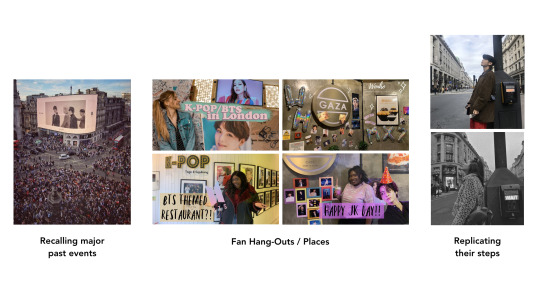#roxy rezvany
Explore tagged Tumblr posts
Text
queer short film: "راكب راكب إنترنت | wifi rider"
queer short cuts is a biweekly newsletter where i share queer & trans short film recommendations. i'm featuring some of my favorite films on tumblr because why not
youtube
jordan | 13 minutes | 2020 | documentary short audio in arabic; english subtitles embedded
راكب راكب إنترنت | wifi rider, directed by roxy rezvany, introduces us to shukri lawrence, a young, queer palestinian-armenian fashion designer and photographer. shukri, who was born in east jerusalem and now lives in jordan, came to fame through his instagram account @wifirider, which he created as a teenager to share his style, fashion, and takes on pop culture. the film, shot on 16mm, also integrates footage from shukri’s early life as well, with shukri’s voiceover to tell us about his story and the clothing label named trashy clothing that he founded with his co-designer omar braika, who is also palestinian. the displacement and threat of state violence that shukri faces is felt throughout the docu-short; he begins by telling us how as a child he dreamed of moving to france, where he thought he would find freedom from his experience in israel. however, over the course of his adolescence, shukri began to understand that while he, like all palestinians currently, has no real home, he prefers his life to still be grounded in the arab world where he still has community in the palestinian diaspora. - deepa's full review, including content notes at the end
you can also find more of director roxy rezvany's work on her website!
#queer short cuts#queer film#film recommendations#shukri lawrence#trashy clothing#short film#documentary short film#roxy rezvany#palestinian queer film#jordanian queer film#video#undescribed#gay short film
321 notes
·
View notes
Photo





Wifi Rider Roxy Rezvany 2020
0 notes
Video
youtube
The Guardian and Docsville - “Little Pyongyang”, 2018
Directed by Roxy Rezvany
“Joong-wha Choi, a former soldier in North Korea, lives today with his wife and children in a sleepy London suburb, home to Europe's biggest North Korean population. Despite enjoying the new found comforts of his British life, and being emancipated from the pressures of the North Korean state, he has a desire to return to the land that betrayed him, and feels like his true home. Joong-wha reflects on both why he left North Korea and the state of his day to day life over the course of several months, in a portrait of loss, longing, and the complexities of healing from trauma.”
#the guardian#north korea#2010s#documentary#video#portrait#politics#human condition#21st century#docsville#roxy rezvany#joong wha choi#short#film
14 notes
·
View notes
Photo




3.4 — FMP:
Fan Culture: FMP Development
After much thought, more research and further exercises, I came into the conclusion that I would like to pursue my third FMP idea revolving around fan culture. Even though I am passionate about all the subject areas from the other ideas and the way I plan on executing them, I feel like this is the right one to pursue at this stage of my creative career. I would like to use London as a resource to find content, as well as use the studio facilities available.
Overall, I think the project covers a topic that is both equally fun to do, but also something insightful and offer interesting commentary (on women, society and community). I like the challenge of bridging “low art” (pop music) and “high art” (documentary filmmaking). More so, documentary style filmmaking is one of my stronger skills as a creative, as proven by my FMP in Year 02, and is something I would like to build on. This project would allow me to level up my skills on this technique/style of filmmaking. I think there’s something comfortable as well as challenging in this project.
The following bellow details some development I made on the idea, as the laying foundations for the project...
RECAP FROM THE EARLIER BLOGPOST:
“Fangirl” Culture
Like I said earlier, I’ve always wanted to champion women or pursue female centric stories in my work. Out of all the things out there regarding the feminine experience, nothing speaks more of it other than boybands and fandom culture. Its always been a persistent part of girl culture; whether it’ll be a pop band or a rock band. I think this would be an interesting world to explore.There’s already a preferred narrative around fangirls - the rabid, crazy kind. Although that is true in some extreme cases, it would be unfair to only present this as the only side of the story. I would like to show the other, more wholesome side. Fandom culture goes beyond the band and the music; in fact, they are only mere catalysts. Fandom culture is ultimately about identity and community; through the band and music, many young girls across the world is given the opportunity to own something and begin to have a good sense of themselves - ultimately forming an identity. Also, its about community; they’re able to connect with others and form strong bonds simply because of the band/music. You can see this, in the queues before gigs or the excitement they discuss their favourite member. Above all, it speaks about a different kind of joy that is often belittled.At present, a lot of the coverage around fandom culture are often done by people outside the community (with negative preconceived ideas which already suggest a bias). It would be interesting to see it from the people in the community themselves. I want to give the girls the voice and and let them reclaim the narrative. Ultimately, tell it from a loving lens. Also, I believe this is quite telling on how female passion is portrayed and what is acceptable, depending on the demographic. Football fans chanting? Perfectly fine. Girls screaming at concerts? Insane. This is aligned with women’s negative and dangerous relationship with hysteria throughout history. I think there is an interesting window to explore the social implications around fan culture. Additionally, I like the challenge of taking something from pop culture and considered as low art, and give it context and background. After all, it deserves to be studied carefully as much as its high art counterparts (From Stuart Hall’s theory Representation: feminine taste = low art, Masculine taste = high art). Above all, I think it would be equally as fun as well to do. It’s would be cool to celebrate fan culture, where its alive and present. Not just through a nostalgic lens. References: BTS’ documentaries: Bring The Soul (2019), “I used to be Normal” Documentary on fangirls across the ages (2018).
FMP Development
I would still like to focus this project on BTS and their fans specifically. They’re the biggest boy band in the world right now and their fans are ones of the most active, both online and offline. I want to be able to document a part of this culture, while it is still happening and its best (rather than through a nostalgic lens). Most importantly, their work and music are monumental in many ways; they’re crossing boundaries, not only in the music but in race relations, toxic masculinity etc. Their global influence must not be undermined.
Documentary Style
For this project, I would like to mix both real life footage to stylised setting. My main point of stylistic reference is Roxy Rezvany’s “Little Pyongyang”. She used a stylised set for her interviews, while also having real life, observational shots of her interviewees natural habitat/form.
youtube
I think this would be a good technique to use for this documentary.
I would like to build my own “teenage bedroom”. After all, this is one of the main touch points for fan culture and feminine culture in general. We learn so much about our tastes right there; this is evidenced in the posters on our walls and the CDs we used to collect. This is referenced a lot in Teen/Coming of Age films. I feel like this would an interesting setting for my interviews to take place. Anyway, it would be harder to film into people’s individual bedrooms. It would make filming easier if I can take my interviewees into one place, rather than going to theirs with my crew (setting up and wrapping up in all of them). More so, I think this is a good opportunity for me to use and improve my art direction skills (see image above for reference). I would decorate the set, referencing the 90s, personalised to a Kpop fan’s perspective (see reference above).
Content
The narrative will be crafted from the content being produced; the interviews will play a crucial role into this and will be the key part of this project. From the emotions to the personal anecdotes, it all stems from this. Therefore, I need to craft the interview questions I’m going to be asking, to trigger the “right” answers or reactions. More so, I really need to pay attention on the actual filming day, so the rhythm/energy of the interview is kept and the questions isn’t answered twice/already embedded on what they formally just said. More so, a technique I was taught/learned from my old FMP was to keep silent in some parts of the interviews, as the interviewees would naturally fill the silence themselves and bring their own thoughts onto the table.
In terms of content, London is rich in terms of resources. It hosts so many hot spots for this fan culture and explore it in real life, in real time.
Some ways this can be executed:
Recall past major events (e.g. BTS Samsung AD that played in Piccadilly Circus that garnered so many fans).
Fan Hang-Out Places (e.g. Gaza cafe, specialising in Korean dessert, in Soho decorates their stores when members of the boybands and make special one-off desserts to commemorate their birthdays. A tradition among fans has then been developed where they make a pilgrimage to this place, to celebrate their favourite members’).
Replicating their steps (e.g. when BTS visited London in their last tour, they took pictures around London when they went exploring in their own time; fans replicated the pictures they took).
Regular Kpop dance classes are held (e.g. BASE studios near Vauxhall).
BTS has an upcoming tour for their latest album, Map of the Soul:7, which includes London as one of their stops. There will be fan-led events leading up to the concert to celebrate their return.
Potential Interviewees
There are few interviewees I think would be good options. Twitter was a good resource to look into, as it is one of the main hot spots for this culture to exist in. In particular, I would like to interview the following:
Lucy Ford (@lucyj_ford) - social media for Netflix
Ellie Bate (@eleanorbate) - buzzfeed reporter
Ikran (@ikran) - buzzfeed reporter
These girls are all what I call “professional fangirls”... They all have media jobs and respected in their profession, yet have unapologetic enthusiasm for BTS and their community (they have good followings on their social media too). They offer insightful but also equally fun things on the day to day through their twitter accounts; I think they would offer the same in a personal interview. Most importantly, they’re all close friends. I think they would have excellent chemistry on screen and their natural friendship would light up the interview.
I would like to interview fans too, of all different backgrounds and races, inquiring how the band has impacted their lives. I want to achieve something similar to this, but communicated in my own personal style and design (rather than the typical, point and shoot interview). The content I want to capture is definitely there (in what they’re saying, how their band affected them personally, their community)...
youtube
Note: Professionally, I would like to only involve fans who are 18 years old and above, so it doesn’t interfere with filming; if I choose people who are 16 years old, it would require a legal guardian to sign a consent form and they have to be on set as we film - this could be a lot of hassle. Even though I’m not getting a full scope of the demographic this way, I think this would be the more sensible option. In addition, I feel like leaning towards the older end will give me more articulate, in depth answers. I think it would be a good idea to contact those who already has a platform, whether its a Twitter account with a reasonable following or a Youtuber who post videos. In a way, I feel they would feel more at ease at being in front of the camera and good at expressing opinions/feelings. I feel like I would do less teasing out of information during the interview if they naturally bring the information themselves.
I also plan on getting in touch with some UK based fanbases to help me boost the idea and find people to interview. This includes:
@BANGTANUK @BTSUKUNITE @UKBTSARMATION @BANGTANSCHOLARS
____________________________________________________________
I look forward into narrowing this project further and progress onto fully forming the project. It feels very much my own and I’m ready to take care of it.
Next steps:
Create proper pitch deck to send to interviewees*
Compile list of potential interviewees and rank them
Contact and introduce myself to interviewees
Create skeleton structure of the documentary*-
Create draft for interview questions*
Run a test interview (to check which questions work)*
Refine Set Design with accurate measurements*
Prop Buying
Contact potential Builders for the set
* urgent tasks - just because the film is non-fiction, planning is required and I must recognise where the beats of the film should be. This is something I failed to do in the D&AD project. Although I am crafting a narrative from non-fiction pieces of information and is dictated by the content of the interview, I should’ve known where to place them in advance.
6 notes
·
View notes
Video
vimeo
A North Korean story.
0 notes
Video
vimeo
Life is lonely for young Palestinian, Shukri. He spends his days on the internet, immersed in a world where Western popstars preach self-love and unity, and where he can forget the lack of acceptance he faces in everyday life. But a life dreaming of paradise abroad does not bode well for a teenager stuck in East Jerusalem. What he desperately wants is to connect with others like him, who feel caught between an occupation, globalisation, and the universal growing pains that come with adulthood. In this 16mm documentary film, we follow Shukri from a childhood in East Jerusalem to moving to the hillside apartments of Amman, Jordan and the sandy shores of the Dead Sea. We discover the origins of his life as the ‘Wifi Rider’, and how he channelled his frustrations into art on the internet via tRASHY. Directed & Produced by - Roxy Rezvany Executive Producers - Emily Renée & Erica Edwards Editor - Ross Leppard Cinematography by - Isaac Eastgate & Jaime Ackroyd Composer - Matt Huxley Sound Designer - Guy Chase Translator - Agatha Ezzedine Colourist - Tim Smith Local Producers - Ihab Muhtaseb & Ibraheem Shahin Sound Recordist - Ahmad Alhlabiah Graphic Designer - Mio Yokota Line Producer - Kasia Kaczmarek 1st AC - Jerry Pradon Production Assistant - Alicia Sing Colour Producers - Olivia Jessop & Melissa Trindade Additional Fixer - Bader Mohtaseb Models - Solenne Tadros & Dunia Almaghari Featuring - Shukri Lawrence, Omar Braika, Reem Kawasmi, Luai Al-Shuaibi, Sereen Khass
Production Company - Besheh Meesheh Films The film was made with support from The LUSH Film Fund & One World Media The film will debut on Topic is the US/Canada, having been selected by Roger Ross Williams for his series One Story Up & will premiere worldwide via Short of the Week and Nowness.
0 notes
Text
Roxy Rezvany talks through the details of her documentary, Little Pyongyang
<!-- (function(d, s, id) { var js, fjs = d.getElementsByTagName(s)[0]; if (d.getElementById(id)) return; js = d.createElement(s); js.id = id; js.src = 'https://connect.facebook.net/en_US/sdk.js#xfbml=1&version=v2.10&appId=657532664596683'; fjs.parentNode.insertBefore(js, fjs); }(document, 'script', 'facebook-jssdk'));//-->
Journalist and filmmaker Roxy Rezvany began her Nicer Tuesdays talk last month by explaining her creative journey. Roxy grew up “loving art and stories and films but I never went to film school,” she says. Despite this, her career in…
The post Roxy Rezvany talks through the details of her documentary, Little Pyongyang appeared first on AWorkstation.com.
source https://aworkstation.com/roxy-rezvany-talks-through-the-details-of-her-documentary-little-pyongyang/
0 notes
Text
UK filmmaker introduces NK through defector
New Malden, a suburb in southwest London, is home to about 600 North Koreans _ making it the largest North Korean defector community outside South Korea. “Yet many people in the U.K. are not aware of this,” British filmmaker Roxy Rezvany, 27, told The Korea Times in an interview. Rezvany grew up in London, but only discovered the area in 2014. from The Korea Times News http://bit.ly/2SYbRPk via IFTTTDiigo Blogger Tumblr Evernote
0 notes
Link
Journalist and filmmaker Roxy Rezvany began her Nicer Tuesdays talk last month by explaining her creative journey. Roxy grew up “loving art and stories and films but I never went to film school,” she says. Despite this, her career in…
The post Roxy Rezvany talks through the details of her documentary, Little Pyongyang appeared first on AWorkstation.com.
0 notes
Photo








3.4 — FMP:
Little Pyongyang (2018) Dir. Roxy Rezvany
Some of my favourite stills from the documentary. I adore the art directed approach to the documentary, which can be considered as an unlikely combination. Facts against a constructed world; I personally really like this contrast. It feels like a fresh take on documentary filmmaking, which often follows an interview style. Most importantly, I like how they remained truthful to topic of the documentary by using North Korean art and aesthetics (can be evidenced and seen on Nick Bonner’s book “Made in North Korea” - Publishers: Phaidon).
Production Designer: Kat Hawker https://www.kathawker.com/
Set Designer: Louis Gibson http://www.louisgibson.co.uk/
0 notes
Video
youtube
3.4 — FMP:
Little Pyongyang (2018) Dir. Roxy Rezvany
I mentioned this in one of my earlier posts (“Things I wish I made”) when I started trying to figure out what my Final Major Project could be. Since I want to take my FMP into a more documentary style route, I feel like this is a good reference to help me anchor the idea or set out what I want to do and want to achieve.
The documentary presents a difficult topic and explores it in such beautiful way. It is sensitive and respectful to the subject matter, while still being visual engaging. In a way, it really de-constructs our understanding of what documentary filmmaking is.
Art direction and set design are utilised here very well and offered a fresh take on documentary filmmaking. The techniques often used and expected are interview style ones. Rezvany does it an unorthodox way here, by allowing it to take place in a constructed setting. The aesthetics feels quite “storybook” like (reference. Wes Anderson), but using it in a factual way is interesting to me. I also like the contrast between real life shots against the studio shots.
What I found the most fascinating is the chosen visual language and aesthetic. I find there’s an equal balance of being respectful to the culture and utilising it as a look. They stayed true to North Korean perspective by using their art appropriately.
I really like how Rezvany took the interviews (about something that is true and factual). I feel like this technique can be utilised in my FMP well. Interviews doesn’t have to be formal and strict in order to honour what being said; the truthfulness of a story doesn’t have to be lost in design. It really highlighted how important world building can be.
I feel like my FMP I want to tell will benefit on this style. I can imagine my interviews taking place in a constructed teenage bedroom (with all the aesthetics - posters galore, messiness etc), when they speak about their love for the band/fandom experience. More so, I feel like it’ll contextualise the world/perspective they’ll be speaking from, in an understandable way that is visually set out for the viewers. As I further develop my FMP, world building will be an important part of the process.






0 notes